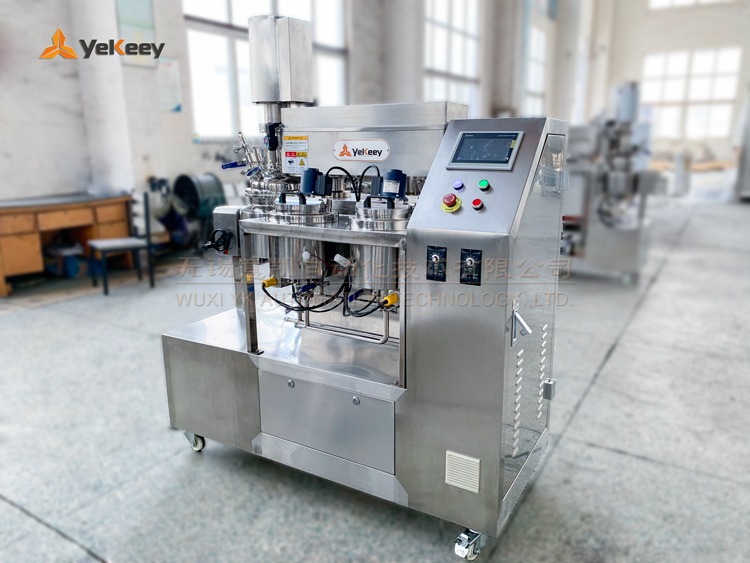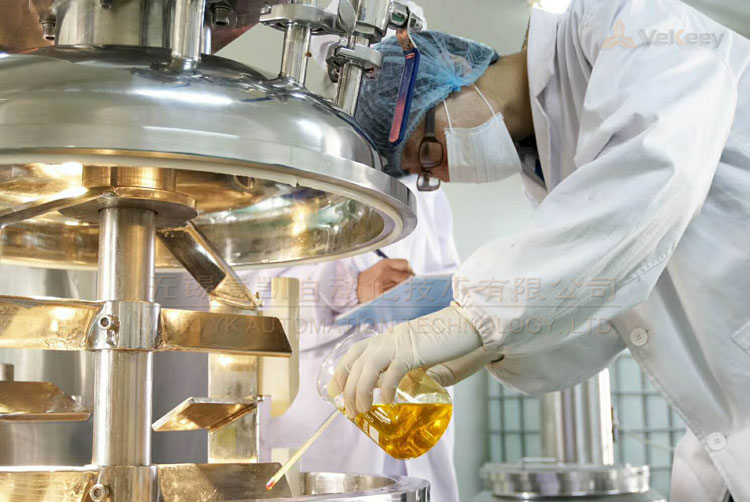The intermediate experimental stage is to further study the changing rules of the process technology in a specific scale device. It will involve problems that cannot be found and solved in the small test stage. The optimal process conditions for each step in the process technology may change with external conditions such as experimental scale and equipment, so the importance of this stage is beyond doubt.
The scale-up of the pilot test is not just as simple as the expansion of the scale. The tasks to be completed in the two periods are different. The main mission of the small test stage is exploration and development, focusing on the analysis of the materials involved, as well as the process of reaction and separation. The problem to be considered in the pilot test stage is how to maintain the balance of matter, heat, and momentum while scaling up, so as to provide stable process means and reliable data basis for the realization of industrial significance and economic scale production.
The method of pilot scale-up of the laboratory emulsifying mixer is as follows:
1. Experience amplification method
Exploring the characteristics of the reactor through step-by-step scale-up based on experience, from laboratory equipment to intermediate equipment to medium-sized equipment and finally to large-scale equipment, is the most important method for the scale-up research of API processes.
The premise of empirical scale-up is that the reactor must be maintained at exactly the same operating conditions as the unit for which the data are provided. Because the premise is difficult to achieve, the magnification is small, and the reactor design cannot be optimized by changing the reactor structure or reaction conditions.
2. Similar amplification method
Amplify using similarity theory. This method is more suitable for the scale-up of physical processes (stirrers and heat transfer devices).
Disadvantage: There is no guarantee that geometry, fluid flow, and heat and mass transfer will all be similar.
3. Mathematical Analog Amplification
The application of computer technology is the main development direction of the pilot scale-up in the future.
Advantages: low cost, short time, high accuracy.
Disadvantages: Because the drug synthesis process is too complicated, building relatively complete physical and digital models is impossible.
4. Micro intermediate device
In recent years, micro-intermediate devices have developed rapidly, and micro-intermediate devices are used to replace large-scale intermediate devices to provide accurate design data for industrialized devices. Its advantages are low cost and fast construction speed.
In recent years, micro-intermediate devices have developed rapidly, and micro-intermediate devices are used to replace large-scale intermediate devices to provide accurate design data for industrialized devices. Its advantages are low cost and fast construction speed.
In general, higher magnification ratios will be used for laboratory-to-pilot production, and lower magnification ratios will be used for pilot-to-industrial production. In this way, the success rate of process amplification can be improved, and potential risks and losses can be reduced.
As a professional emulsifying machine manufacturer, YeKeey laboratory homogeneous emulsifier equipment is widely used in food, pharmacy, cosmetics, chemical industry, university teaching, various research institutes, and technology research institutes. As a partner who can quickly respond to market changes, YeKeey can provide customers with full support from the first product concept to industrialization, helping customers put their ideas into practice. YeKeey’s 100,000-level purification laboratory is a space to try new ideas.
Here, customers can test experience machines in a laboratory equipped with professional equipment, while customers also receive expert advice and support on technical equipment. Contact us to learn more!







